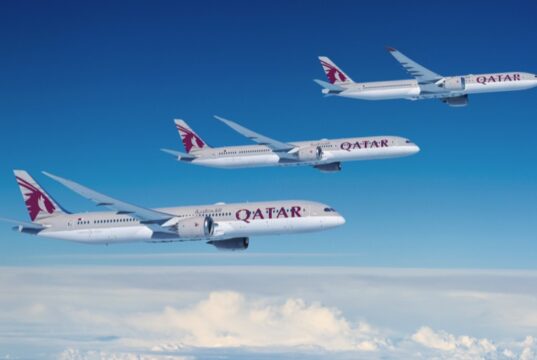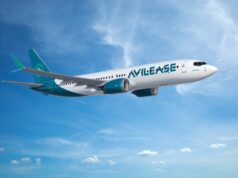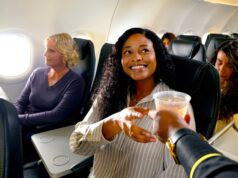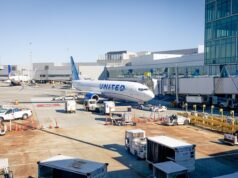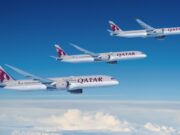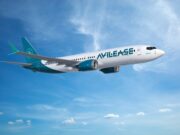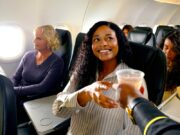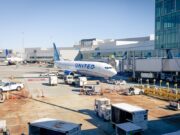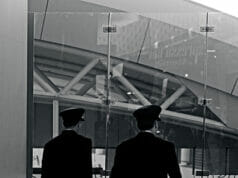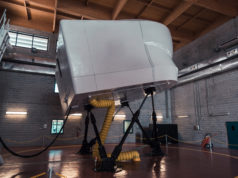 Pilot forums and related websites were abuzz this week after the latest news headline “President Trump Signs Executive Order Allowing Military to Recall up to 1,000 Retired Pilots.” You can bet that caught my attention as a recently retired Air Force pilot who has been “living the dream” as an airline pilot since 2015. The online threads all had one common theme; there is a good reason why many pilots chose to leave the military for the airlines after retirement and many others chose to separate rather than remain active duty. That reason is quality of life (QOL).
Pilot forums and related websites were abuzz this week after the latest news headline “President Trump Signs Executive Order Allowing Military to Recall up to 1,000 Retired Pilots.” You can bet that caught my attention as a recently retired Air Force pilot who has been “living the dream” as an airline pilot since 2015. The online threads all had one common theme; there is a good reason why many pilots chose to leave the military for the airlines after retirement and many others chose to separate rather than remain active duty. That reason is quality of life (QOL).
One of the beautiful things about an airline pilot career is that you get to define what QOL means to you. For some people that means living in a great city with great schools for their kids even if that means having to commute to work. However, unlike your time in uniform, you now have the freedom to choose where you live. Other pilots may define QOL as accepting a move to live in their assigned airline domicile knowing that will maximize the time spent with family because they won’t have to spend valuable days off commuting back and forth to work. Quality of life may also be defined by the freedom to pick up extra days of flying to make a little extra money to pay for luxuries such as a boat, an airplane, or family vacation. You can also choose between the possibility of wide-body international flying or narrow-body domestic flying and the pay, schedule, and seniority differences associated with both. The airline industry is all about having choices when it comes to quality of life, it truly is a choose-your-own adventure book. The choices you make in terms of the airline, aircraft type, and domicile you choose, combined with where you choose to live, will all have a huge impact on your QOL as an airline pilot. The good news is that, for the most part, none of these choices are static; there will be opportunities throughout your airline career to change any or all of these factors.
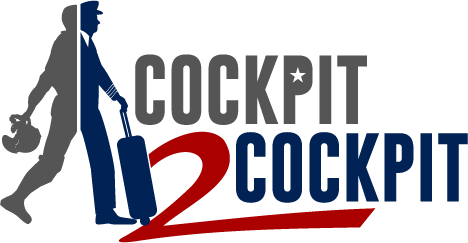
Image provided by Marc Himelhoch
Don’t get me wrong, I loved being an Air Force pilot and I wouldn’t change a thing about the path I chose to get where I am now in the right seat of B-737. There is a definite pride and strong sense of duty, sacrifice, and patriotism that comes with serving your country as a member of the armed services. The flying was also deeply satisfying and I will always look back fondly on the memories of my glory days of lighting my hair on fire (maybe that’s why it’s all turning grey and falling out now), the places I’ve been, and the great people I worked with. Despite my nostalgia for my time in uniform, there is no question in my mind that my QOL as an airline pilot far exceeds anything the military could offer due to the nature of military service. This week’s headlines caused me to give more critical thought to the term “quality of life,” and what that really means to me. After reflecting on many various factors that could be considered when defining QOL, I’ve grouped them into five major categories that are, to me, the essence of QOL. This will be the first of a two-part article comparing quality of life as a military pilot vs. an airline pilot in the categories of time off, schedule flexibility, location, job satisfaction, and pay/benefits. In this first part, we’ll focus on the first two QOL factors of time off and schedule flexibility.
Time Off
The first thing that comes to mind as I compare my airline lifestyle with my time in the military is how much more time off I have as an airline pilot. Airline contracts define the maximum number days you can be scheduled to work each month, varying anywhere between 12-18 days per month.
Although I had weekends off most of the time in the military (on average eight days off per month), inevitably I would end up working at least two or three weekend days on my “time off” just to get caught up on the tremendous workload from additional duties. I don’t think I need to elaborate any further, if you’re a military pilot, you know all too well what I’m talking about. In my airline job, my schedule averages 16 days off per month and I usually choose to work an extra one or two days each month to make some extra money.
Think about what you would do with an extra ten days off per month? That could be time spent with family or reconnecting with long lost hobbies. You and your family could travel the world with your new travel benefits. Many pilots start a side business for the tax benefits and another source of income. Maybe you just want to relax and do nothing? When’s the last time you read a book just for pleasure? I know several pilots who use their time off performing community service for various causes that touch their hearts. If you choose to continue military service in the Air National Guard or Reserves then some of your “time off” will be spent living the best of both worlds by continuing to serve in uniform while building your airline seniority. The choice is yours.
As I alluded earlier, the choice to be a commuter is also a choice to give back some of your time off to the commute and it’s a strong factor to consider when choosing an airline and the QOL you want. Optimistically, you’ll lose at least half a day on each end of every airline trip and sometimes more depending on the commute. If you have four airline trips per month, that’s four days a month or 48 days a year spent commuting. Sometimes the flights are full or cancellations and delays can impact your commuting plan. When you add in the stress of “will I make it to work?” or “will I make it home tonight?” and the cost of hotel rooms or crash pads, it can quickly degrade your QOL. I’m not telling you not to commute; I know commuters who are very happy with the choice they made because they get to live in some amazing places. I just want you to know what you’re getting into when making the decision to commute vs. living in domicile.
Vacations are another form of time off to be considered when looking at an airline pilot lifestyle. My airline starts out at two weeks of paid vacation after your first year, and tops out at five weeks paid vacation by your 18th year with the company. Our system allows you to optionally have the company drop any trip in your vacation month line that touches any day of your paid vacation, thus it’s fairly common to turn each week of vacation time into 10-11 days of vacation time. This is one area where military quality of life is actually a little bit better initially. Even with the extra few days off by dropping trips that touch my vacation week, I won’t exceed my 30 days military paid vacation per year until my fifth year at the airline. Additionally, because vacation weeks are bid based on seniority, it’s difficult to get a week of vacation awarded in the summer months or during the holidays until I’m more senior.
Sick pay is another form of “time off” that military pilots are not used to. The various airlines have different rules in their contract about how sick pay is accrued and how it is used but essentially the more you fly the more sick time you earn. At my airline, when you call in sick, they will ask you if you want to use your sick pay bank (i.e. paid time off) or have the trip pulled without pay. Some airlines have a use or lose system that only allows sick time to accrue only for so long before any excess is lost. Other airlines allow pilots to build unlimited sick time. Most airlines also have an option for being able to cash in excess use or lose sick time.
No matter how you slice it, you’ll have more free time on your hands as an airline pilot compared to your time off as a military pilot. Additionally, without the burden of additional duties to worry about, it’s a job you can truly leave at the office and not have to think too much about it until your next trip. All of that time off can really lower your stress level and raise the bar on your QOL!
Schedule Flexibility
In the military flying world, you’re used to a pretty rigid schedule depending on the type of aircraft you fly. In fighters, it was fairly standard to work Monday through Friday when at home, and six days (sometimes seven days) a week when deployed. If we weren’t on leave, we were expected to be at work. Additionally, as I alluded earlier in this article, many of us found ourselves in the squadron on our days off to get caught up on the never-ending pile of queep (Air Force term used to describe mundane additional duties that pull us away from flying).
As an airline pilot, it’s much easier to move things around to get a day (or even a week) off if you need it. That’s not a 100% guarantee that you’ll be home for every one of Johnny’s baseball games during the season, but I will be so bold as to say that you’re a lot more likely to catch most of those games as an airline pilot than you did as an active duty military pilot. However, because the airlines are a seniority-based system, the level of schedule flexibility initially starts out low but gets better as your seniority grows. At the rate most major airlines are hiring, you won’t be junior for very long.
Once you are a line holder, you’re QOL in terms of schedule flexibility will increase dramatically. When you first start out at an airline, you’ll be on reserve. Think of reserves as sitting alert, something most of us have done in the military. You know which days of the month you’re working, but you have no idea if, or where you will fly on those days. Typically you’re on “short call” reserve of two-hour telephone standby (the time varies from one airline to the next). From the time the company calls you with a trip notification, you have two hours to get to the airport. That’s not a very good quality of life. A typical reserve block lasts 3-6 days depending on the airline, aircraft type, and domicile. You’ll likely be scheduled for 3-4 reserve blocks each month. Pilots generally avoid reserve blocks (although sometimes senior pilots will pick them up so they can get paid to sit at home) so they aren’t as easy to give away or trade with other pilots. At the current pace of hiring at most major airlines, you’ll probably be off reserve in less than a year and in some cases less than six months.
Once you’re a line holder, your schedule flexibility, and hence your QOL, becomes much better because it’s now much easier to give trips away, or trade them around with other pilots or with the company. When you’re choosing aircraft types and domiciles, keep in mind that you can only trade trips with other pilots in the same seat as you (first officer or captain), in the same aircraft type, and it’s much easier to trade trips with those in the same domicile. Therefore, the more pilots in your aircraft type at a domicile, the more trade options available. As you’re seniority grows, you’ll be able to get better schedules, also making it easier to trade your trips because you’ll have trips that others want such as high paying weekday trips.
In my first year at my airline, I had a wedding to attend in the British Virgin Islands (BVI). I had been with my airline for less than six months, however, I was still able to clear a week off my schedule to attend the wedding without using any vacation or sick time. Simply by trading one trip, my wife and I were able to spend an amazing five days in the BVIs. It was a beautiful wedding and I even squeezed in some great scuba diving…talk about QOL!
Sometimes you don’t even need to trade or give away anything; you can just bid to have certain days of the month off. I’ve been doing some general aviation flying on my time off and I had been looking for an opportunity to take my wife out for a $100 hamburger (not literally, but if you’re flying general aviation to go have lunch someplace it might as well cost that much) to get her excited about buying an airplane (that’s my evil plan, but don’t tell her). Last month, I had reserved an airplane with my flying club on a Saturday to fly my wife from Dallas down to Nacogdoches, TX for a day-trip. I just bid not to fly with my airline on that Saturday and it worked out perfectly. We had a great day of fun, exploring the oldest city in Texas and yes; we got that $100 hamburger.
Many airlines use Preferential Bidding System (PBS) to build their monthly flying schedule. Pilots at airlines that use PBS don’t actually get to see their flying lines during the bidding process. It’s kind of like bidding in the dark, you just tell PBS what you don’t want to do, and the program tries to comply with your requests based on what’s left when it gets to your seniority number when building the schedule. For instance, maybe you told PBS you don’t want to fly on weekends, you don’t like redeyes, you don’t want international flying, you don’t want flight segments that pay less than 2.0 block hours, etc. You may or may not get what you desire based on what’s left when they are building your line for the month. PBS is great if you’re very senior in your aircraft type, seat, and domicile…otherwise not so much.
My airline uses straight bidding. That means if there are 500 pilots in a domicile, they build and publish 500 monthly flying schedules and you get to bid them in priority order from 1 to 500. You can see exactly what each line pays, where the overnight cities are, how long the overnights last, the takeoff and land times, the number of aircraft changes, the total time away from base, etc. In my opinion straight bidding gives you much better schedule flexibility, and hence better QOL than PBS (unless you’re super senior).
You can also get really creative with airline schedule flexibility to improve your QOL. I have a friend here in Dallas who is a pilot for American Airlines but he is domiciled in New York City. He’s been at American less than a year and he’s already holding a line at LaGuardia. This month he was able to give away three out of four of his LaGuardia trips. Instead he picked up similar paying trips from the company and other pilots in Dallas domicile, saving him the wear and tear of having to commute to New York.
 Summary
Summary
In order to keep this as an “article” and avoid it becoming a novel, I’ve decided to break it into a into a series. In part one, we have explored two of the five factors that, in my opinion, differentiate quality of life as an airline pilot compared to a military pilot. The airline industry is very unique in that it allows you (for the most part) to define your own quality of life. Your time off and schedule flexibility as an airline pilot offer incredible QOL advantages over military aviation.
Next month in part two of two, we’ll look at the QOL factors of location and job satisfaction in the airlines. If this Executive Order pilot recall is carried out to the fullest extent, I may very well be writing part two of this article on my “time off” back in uniform. I hope they make me head SNACKO!












